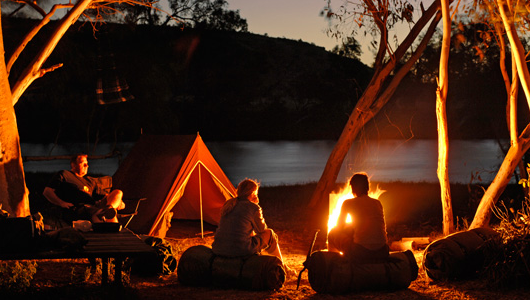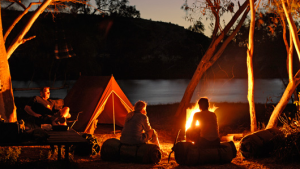Camping in a remote, natural locale is one of the best ways to refresh yourself, recharge you batteries, and rekindle an appreciation for the natural wonders of your world. Whether camping out of the back of your SUV in Appalachia, or backpacking the Burren way in coastal Ireland, the same considerations should be made to ensure that your trip is comfortable, safe, and enjoyable. Keeping the following in mind will help the inexperienced camper get in the right mindset for a successful trip.
If you’re camping from the back of a vehicle, or setting a tent in a single location for a week, it’s not critical to be concerned about weight of your equipment and provisions, but if you’re backpacking, or setting up a campsite in a new location every couple nights, then you’ll want to ensure you’re not carrying anything extraneous. are made from high-tech, lightweight fabrics and support materials, and if you’re carrying one everywhere you go, every pound counts. Eschew complicated cooking set-ups and provisions, in favor of simple mess kits and dense, low-profile foodstuffs. Remember that you’re going to have to carry your garbage with you, too, so don’t bring a bunch of disposable packaging that you’re going to have to lug around for a week or more.
Method 2: Do your prep work
Do you know what the weather is like where you’re trekking? Do you have the right kind of tent for conditions? A proper sleeping bag for the season? What about rain? A ground tarp to put under your tent during a humid summer so you don’t wake up in a puddle of muddy water? A little research into where you’re going can ensure that you’re properly prepared for wherever you’re planning on traveling. is never one-size-fits all.
Method 3: Be ready for things to go wrong
No trip is without unexpected difficulties. Obviously, every backpacker should have a well-stocked first-aid kit, and leave a detailed itinerary with loved ones or officials in case of disaster, but being ready for things to go wrong can be as simple as having garbage bags (lightweight and infinitely useful) to make makeshift ponchos out of, or a spare pair of glasses in case you drop your good pair into the Bolton Strid (just let them go). Make a plan “B,” and in case plan “B” fails, have a plan “C.”
Really, the difference between a successful camping trip and a miserable one is in the planning stages, long before the trip ever begins. If you’re diligent beforehand, your chances are good for a relaxing, invigorating, trip you’ll remember for years to come.





